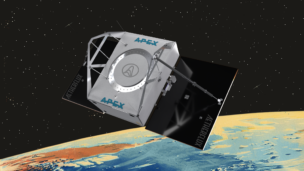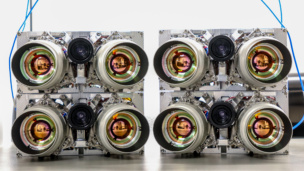Rivada Space Networks has been racing against the clock to deploy a secure, laser-linked LEO comms constellation before a deadline imposed by the International Telecommunications Union (ITU). The company was on track to miss the first goalpost, which required 10% of its 576-satellite constellation in orbit and working by September.
The ITU has issued a waiver, however, allowing Rivada to bypass the first deadline and retain its spectrum rights, so long as it can meet the second deployment deadline in mid-2026.
Backing up: Last year, Rivada emerged with big plans for the first privately owned secure communications constellation for government and enterprise users, as well as a trick up its sleeve: a high-priority, 4,000 MHz region of Ka-band.
- Rivada acquired these spectrum rights from Liechtenstein-based Trion Space back in 2014.
- These rights are key for their higher-priority designation over other LEO megaconstellations, notably Starlink and Kuiper, since Trion beat them to the punch.
- This means that Rivada has the right to receive and transmit data on this band before its competitors when there’s a conflict, ensuring greater speed and reliability of its own network.
The LEO constellation will carry data routers onboard and communicate via a mesh network of laser links, allowing customers to transmit data as quickly as—or faster than—terrestrial fiber optics.
Race against time: Those spectrum rights came with a caveat. The ITU wants that space used, and fast. The ITU deadlines:
- 10% of the constellation by September 2023
- 144 satellites plus six spares by June 2026
- An additional 144 satellites and six spares by September 2026
- The rest by 2028
Rivada has acknowledged that it wouldn’t have been possible to meet the September deadline, but applied for a waiver from the ITU on the basis that it has contracts in place for satellites and launch partners. The ITU approved that waiver at its meeting this week.
Breathing room: Now that the first deadline has been forgiven by the ITU, “we are working very closely with the regulator to make sure that all the conditions attached to these filings are satisfied and to ensure the success of these groundbreaking satellite constellations,” Rivada CEO Declan Ganley said in a release.
Rivada awarded Terran Orbital ($LLAP) a monster $2.4B contract in February to build the first fleet of 288 satellites and 16 spares for a grand total of 300 birds. Terran received its first milestone payment for an undisclosed amount in April, and both companies say that manufacturing is on track to meet the 2026 deadline.





